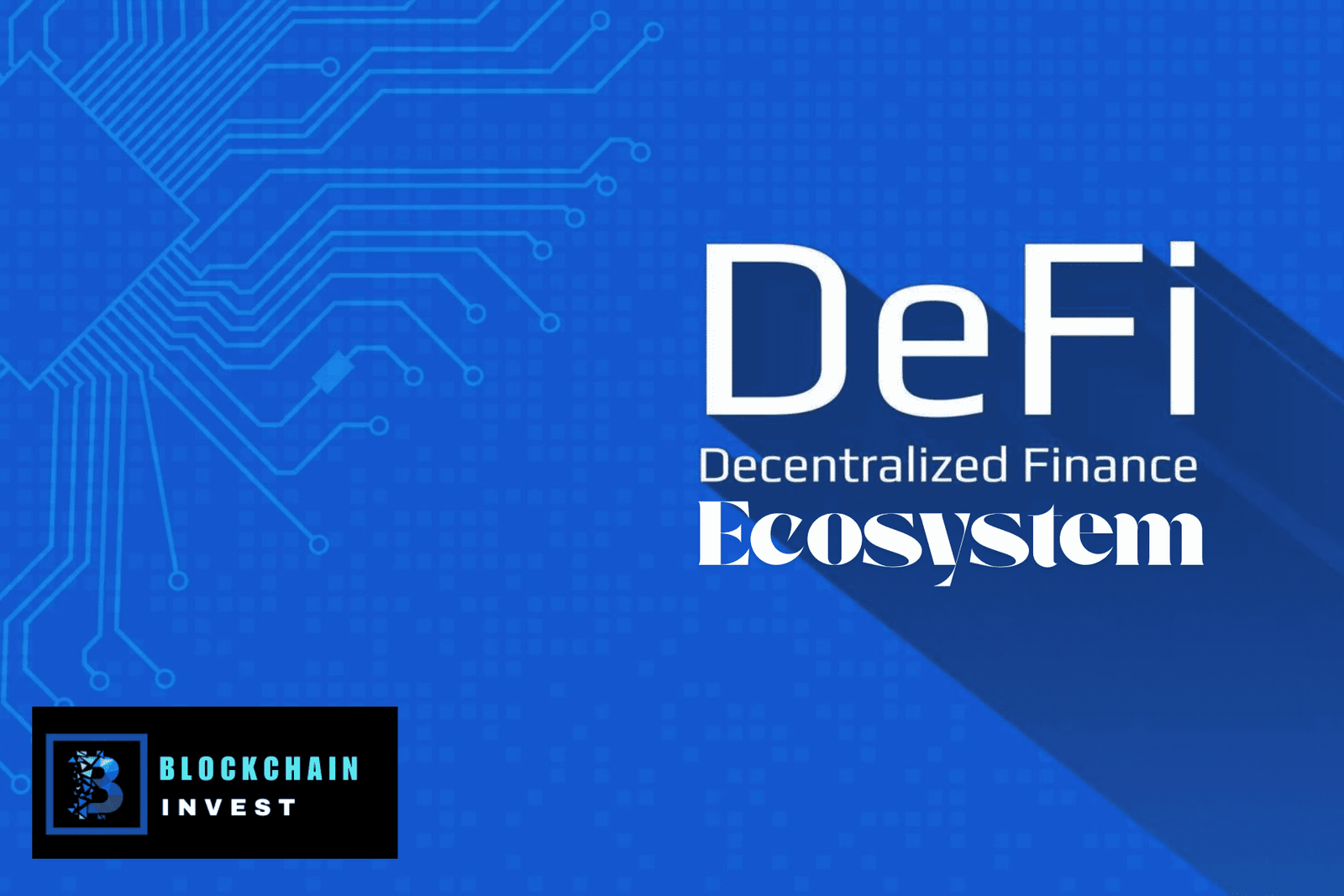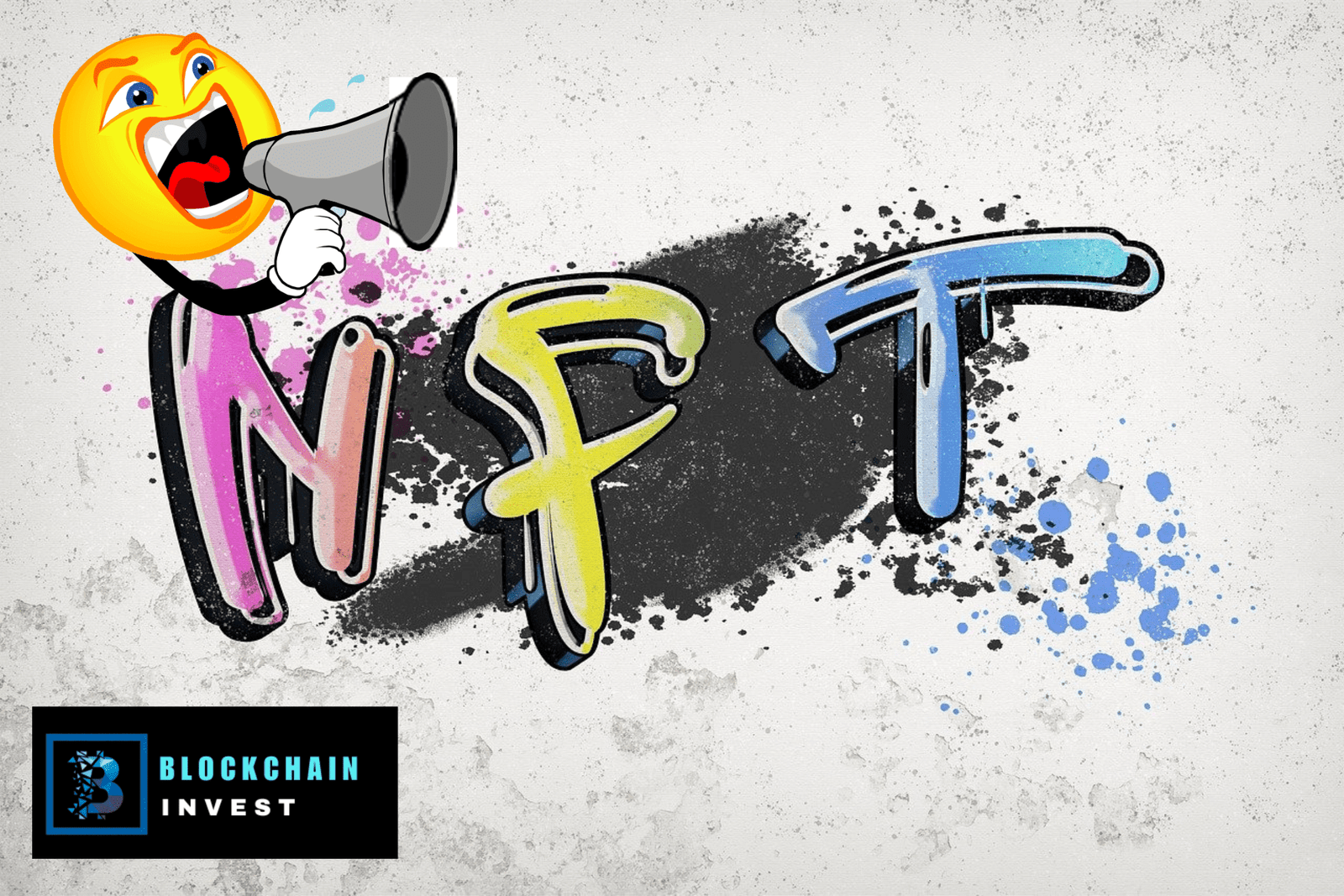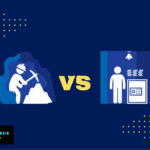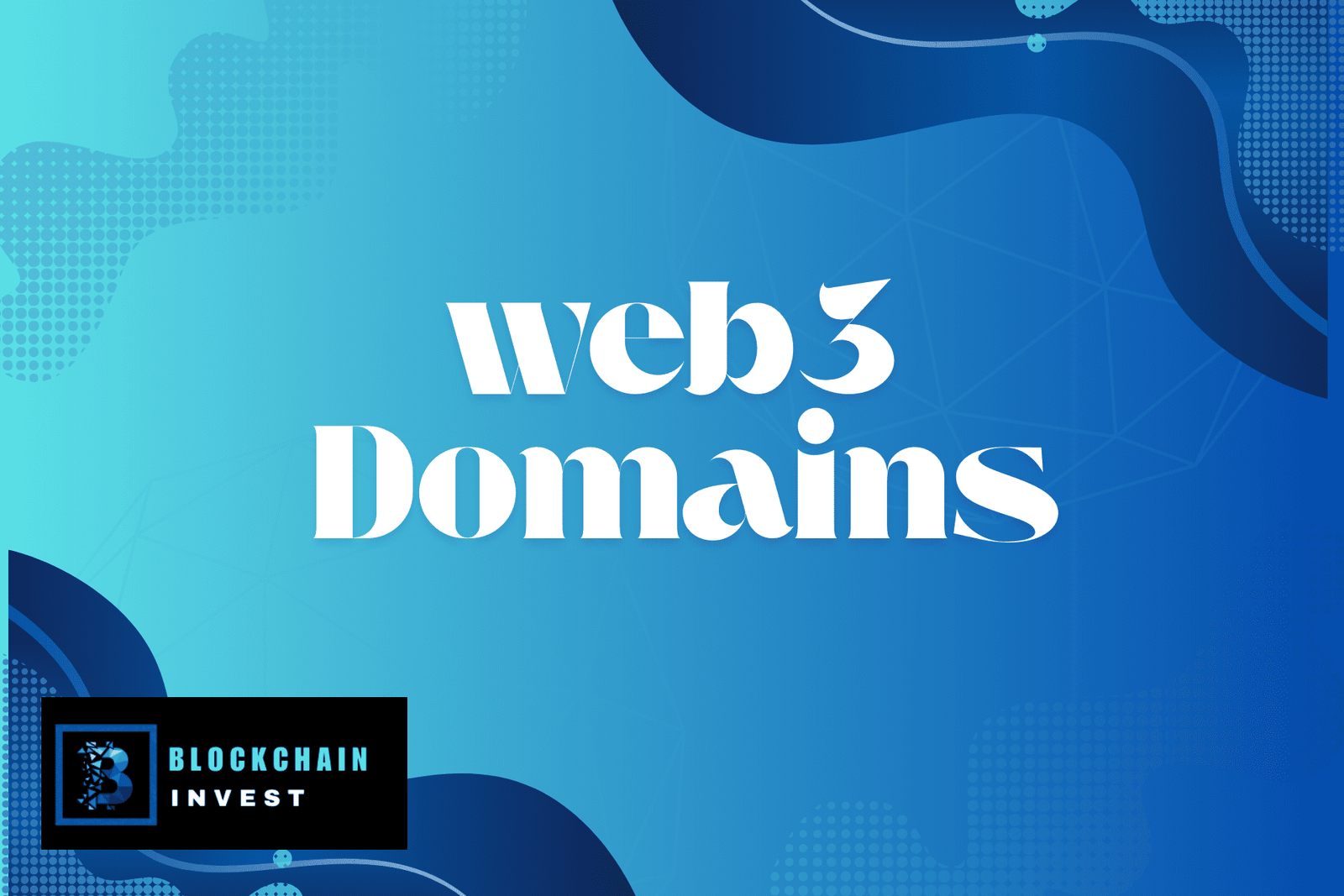Which Industries are Adopting Blockchain Technology the Fastest?
Here’s What’s Inside This Blog Post1 Finance And Banking1.1 Secure Transactions1.2 Fraud Prevention1.3 Smart Contracts2 Healthcare2.1 Patient Data Security2.2

Here’s What’s Inside This Blog Post
- 1 Finance And Banking
- 2 Healthcare
- 3 Supply Chain Management
- 4 Real Estate
- 5 Retail and eCommerce
- 6 Energy
- 7 Government and Public Records
- 8 Entertainment and Media
- 9 Key Data on Blockchain Adoption
- 10 Other Industries to Watch
- 11 Why the Rush to Blockchain?
- 12 Challenges and Considerations
- 13 The Future of Blockchain Adoption
- 14 Frequently Asked Questions
- 15 Conclusion
Blockchain is changing the way many industries work today. It’s not just for crypto anymore. Big businesses now use blockchain to improve safety, speed, and trust. So, which industries are moving the fastest?
Blockchain is no longer just about cryptocurrency. It has found its way into numerous fields, bringing innovation and efficiency. Many industries see its potential to solve complex problems. From finance to healthcare, blockchain offers new ways to handle data and transactions.
Understanding which sectors are quick to embrace this technology can help you see its broader impact. This blog post will explore the industries that are leading in blockchain adoption. You will learn how they use it and the benefits they gain. Ready to dive in? Let’s explore this fascinating topic together.
Finance And Banking
Finance and banking industries are quickly adopting blockchain technology. They use it to secure transactions and reduce fraud. This technology is making processes faster and more transparent.
Blockchain technology is revolutionizing various sectors, but none more so than finance and banking. This industry is moving quickly to adopt blockchain for its potential to increase efficiency, security, and transparency. If you’ve ever been frustrated with the slow and opaque processes of traditional banking, blockchain offers some exciting solutions. . Big names like JPMorgan and HSBC now use blockchain. Why? Because it’s faster, cheaper, and safer.
Secure Transactions
Blockchain enables secure transactions by using advanced cryptographic techniques. Each transaction is encrypted and added to a chain of previous transactions, making it nearly impossible to alter.
Imagine sending money abroad and knowing it will reach the recipient without any hiccups. Traditional banks could take several days, but blockchain allows near-instantaneous transfers.
Your financial data stays private and secure, reducing the risk of hacks and fraud.
Fraud Prevention
Fraud is a significant concern in finance, costing billions annually. Blockchain’s immutable ledger makes fraudulent activities easy to detect and nearly impossible to execute.
Every transaction is transparent and verifiable by all parties involved. Think about how this could simplify auditing and compliance.
Wouldn’t you sleep better knowing your bank account is almost impervious to fraud?
Smart Contracts
Smart contracts are self-executing contracts with the terms directly written into code. They automatically enforce and execute the terms of the agreement when conditions are met.
This can streamline processes like loan approvals, insurance claims, and even real estate transactions. You no longer have to wait for a human to process your paperwork.
Smart contracts reduce the need for intermediaries, saving both time and money.
Blockchain is clearly making waves in the finance and banking industry. How do you see it changing your banking experience?
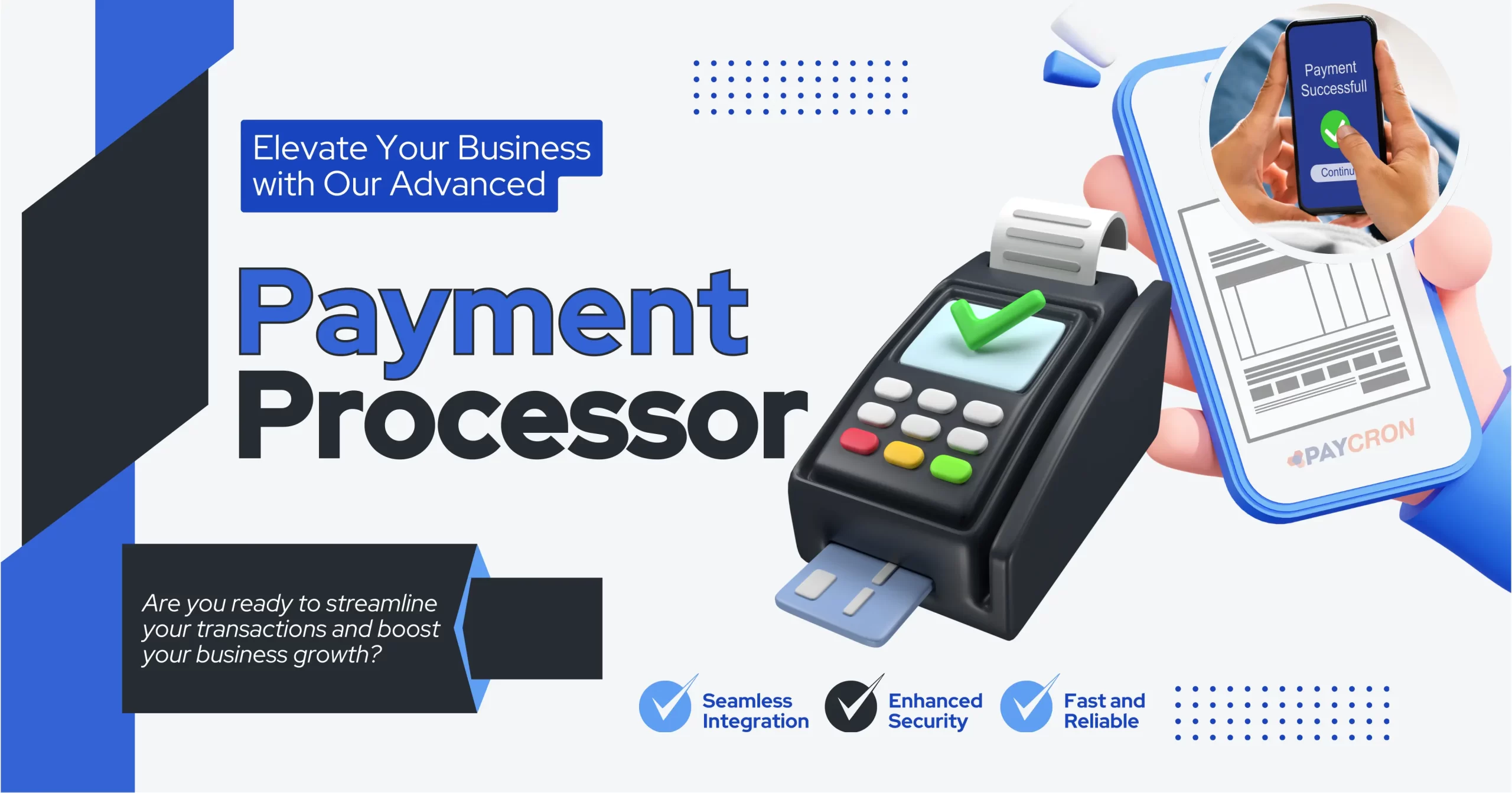
Credit: www.paycron.com
Healthcare
Blockchain technology is making waves in various sectors, and healthcare is no exception. The healthcare industry is rapidly adopting blockchain to enhance patient care and streamline operations.
Patient Data Security
Patient data security is a major concern in healthcare. Blockchain can ensure data integrity and privacy. Each patient’s data is stored in a decentralized ledger, which makes it harder for hackers to access. This secure system can prevent data breaches and protect sensitive information.
Managing the supply chain in healthcare is complex. Blockchain simplifies this process. It provides a transparent and tamper-proof record of the entire supply chain. From manufacturers to patients, each step is recorded. This transparency ensures that medical supplies and equipment are authentic and safe.
Drug Traceability
Fake drugs are a significant problem in healthcare. Blockchain helps in tracing drugs from production to delivery. Each transaction is recorded on the blockchain, making it easy to verify the drug’s authenticity. This ensures that patients receive genuine medications, improving overall health outcomes.
Supply Chain Management
Blockchain technology is quickly adopted by industries like finance, healthcare, and logistics. These sectors benefit from enhanced security, transparency, and efficiency in supply chain management.
Supply Chain Management is one of the industries rapidly adopting blockchain technology. The need for transparency, efficiency, and product authentication is driving this shift. Blockchain provides a secure and immutable ledger that can revolutionize how supply chains operate. Walmart uses blockchain to trace food safety. Maersk, a shipping giant, uses it to manage cargo. It cuts delays and boosts trust.
Supply chain management is racing ahead with blockchain. It’s the fastest-growing industry in some reports, with a 29.8% yearly growth rate from 2024 to 2030 (IndustryARC).
Transparency
Transparency is crucial in supply chain management. Blockchain allows all stakeholders to view the same data in real-time. This eliminates discrepancies and ensures everyone is on the same page.
Imagine being able to track a product from its origin to the final consumer. You can see every hand it passes through and every location it visits. This level of detail helps build trust among all parties involved.
Efficiency
Efficiency in supply chain management can significantly reduce costs. Blockchain streamlines processes by eliminating the need for intermediaries. Smart contracts automate transactions and ensure compliance.
Consider how much time you spend on paperwork and manual checks. With blockchain, these tasks can be automated, freeing up valuable resources. This means faster delivery times and happier customers.
Product Authentication
Product authentication is vital to combat counterfeiting. Blockchain offers a way to verify the authenticity of products. Each item can be tagged with a unique identifier that is recorded on the blockchain.
Think about the peace of mind you get knowing a product is genuine. Whether it’s a luxury handbag or a bottle of medication, you can trust its origin and quality. Blockchain makes this possible by providing an unalterable record of the product’s journey.
Incorporating blockchain in supply chain management is not just a trend; it’s a necessity. As transparency, efficiency, and product authentication become more critical, blockchain offers practical solutions. Are you ready to transform your supply chain?
Real Estate
Real estate is one of the oldest industries in the world. It involves buying, selling, and managing property. Recently, it has begun to embrace blockchain technology. This change is making processes more secure and transparent. Here, we explore how blockchain is transforming real estate.
Property Transactions
Blockchain is streamlining property transactions. It reduces the need for intermediaries like agents and brokers. This makes the process faster and more cost-effective. Buyers and sellers can trust the data as it is tamper-proof. The history of property ownership is clear and easy to verify.
Title Management
Title management can be complex. Blockchain simplifies it by storing titles on a secure, digital ledger. This reduces the risk of fraud and errors. Owners can easily prove their ownership. This also speeds up the process of transferring property titles.
Lease Agreements
Lease agreements are also seeing benefits from blockchain. Smart contracts automate the lease process. They ensure all parties follow the agreed terms. Payments and renewals happen automatically. This reduces disputes and improves trust between landlords and tenants.
Retail and eCommerce
Blockchain technology is rapidly transforming the retail sector. Its potential to enhance transparency, security, and efficiency is driving its adoption. For example, luxury brands use it to stop counterfeits. Amazon and Alibaba are exploring blockchain for smoother operations.
Inventory Management
Retailers are using blockchain to streamline inventory management. Imagine having real-time visibility into stock levels across multiple locations. Blockchain offers a decentralized ledger that tracks every product’s journey, reducing discrepancies and losses.
Have you ever faced out-of-stock issues? Blockchain minimizes such problems by providing accurate inventory data. Retailers can restock efficiently, ensuring products are available when customers need them.
Customer Loyalty Programs
Customer loyalty programs are getting a blockchain makeover. Traditional loyalty programs often suffer from inefficiencies and fraud. Blockchain offers a secure and transparent way to manage these programs.
Think about your last experience with a loyalty program. Was it seamless? Blockchain enhances user experience by ensuring points are accurately awarded and redeemed. It also allows for interoperability between different retailers, making your points more versatile.
Counterfeit Prevention
Counterfeit products are a significant issue in retail. Blockchain provides a solution by offering a tamper-proof record of a product’s origin and journey. This ensures authenticity and builds customer trust.
Consider the last time you bought a branded item. Were you confident it was genuine? With blockchain, you can verify a product’s authenticity before purchase. This not only protects consumers but also preserves brand integrity.
Blockchain is undeniably transforming retail in multiple ways. Are you ready to embrace these changes and enhance your retail experience?
Energy
Blockchain technology is making waves in various sectors, and the energy industry is no exception. The decentralized nature of blockchain offers numerous benefits. These include enhanced security, transparency, and efficiency. It is transforming traditional energy systems and paving the way for new opportunities. Companies like Power Ledger lead this move. Clean energy and blockchain go hand in hand.
Grid Management
Grid management is essential for maintaining a stable energy supply. Blockchain can help improve this process. It allows for real-time monitoring and control of energy distribution. This ensures a balanced and efficient grid. Decentralized ledgers can record transactions and data. This reduces the risk of outages and improves reliability.
Energy Trading
Energy trading is another area where blockchain is making an impact. Traditionally, energy trading involves intermediaries, which can be costly. Blockchain removes the need for these middlemen. It enables peer-to-peer energy trading. Consumers can buy and sell energy directly. This leads to lower costs and increased efficiency.
Renewable Energy Tracking
Tracking renewable energy sources is crucial for sustainability. Blockchain provides a transparent and secure way to track the origin of energy. It ensures that renewable energy certificates are accurate. This helps in verifying that energy comes from sustainable sources. It also promotes trust among consumers and suppliers.
Government and Public Records
Blockchain technology is making waves in various industries, and one of the fastest adopters is the government sector. Governments worldwide are beginning to see the potential of blockchain to enhance transparency, security, and efficiency. From voting systems to public records, blockchain is transforming. It can make public records tamper-proof. Voting systems are more secure with blockchain. It also helps manage IDs and land titles. Countries like Estonia and Dubai lead in this tech.
Voting Systems
Imagine a voting system where fraud is virtually impossible. Blockchain can provide this level of security. By using a decentralized ledger, each vote is recorded in a transparent and immutable manner. This ensures that elections are fair and credible.
Estonia is a prime example of a country leveraging blockchain for voting. Their e-Residency program allows citizens to vote securely online, boosting participation and trust in the electoral process. How would you feel knowing your vote is tamper-proof?
Identity Verification
Identity theft is a growing concern. Blockchain can streamline identity verification, making it both secure and efficient. Governments can store personal data on a blockchain, ensuring it is protected and easily accessible.
Take the case of India’s Aadhaar system. It uses blockchain to manage the identities of over a billion citizens. This not only improves security but also simplifies the process of identity verification for various services. Have you ever struggled with proving your identity?
Public Records
Maintaining public records is a daunting task. Blockchain can revolutionize this by making records easily accessible and tamper-proof. Governments can store documents like land titles, tax records, and birth certificates on a blockchain.
In the state of Vermont, blockchain is used for recording property transactions. This ensures that records are accurate and unalterable, reducing fraud and errors. Imagine the peace of mind knowing your property records are secure.
Governments adopting blockchain technology are paving the way for a more transparent and efficient future. What other areas do you think could benefit from this technology?
Entertainment and Media
The entertainment industry is rapidly adopting blockchain technology. Blockchain offers solutions to various challenges faced by creators and consumers. Its unique features provide transparency, security, and efficiency. Platforms like Audius and Theta use blockchain. It’s a game-changer for artists and fans alike.
Digital Rights Management
Digital rights management is crucial for content creators. Blockchain ensures that creators maintain control over their work. It prevents unauthorized use and distribution of content. Blockchain’s immutable ledger keeps track of ownership and usage rights. This provides a clear, tamper-proof record.
Content Distribution
Content distribution benefits greatly from blockchain technology. Blockchain allows for direct distribution of digital content. This reduces the need for intermediaries. Creators can reach their audience directly. It increases efficiency and reduces costs. Fans get access to content faster and more securely.
Royalty Payments
Royalty payments can be complicated and delayed. Blockchain simplifies this process. Smart contracts ensure timely and accurate payments. Creators receive their fair share instantly. It removes the need for trust between parties. Blockchain’s transparency ensures all transactions are visible and verifiable.
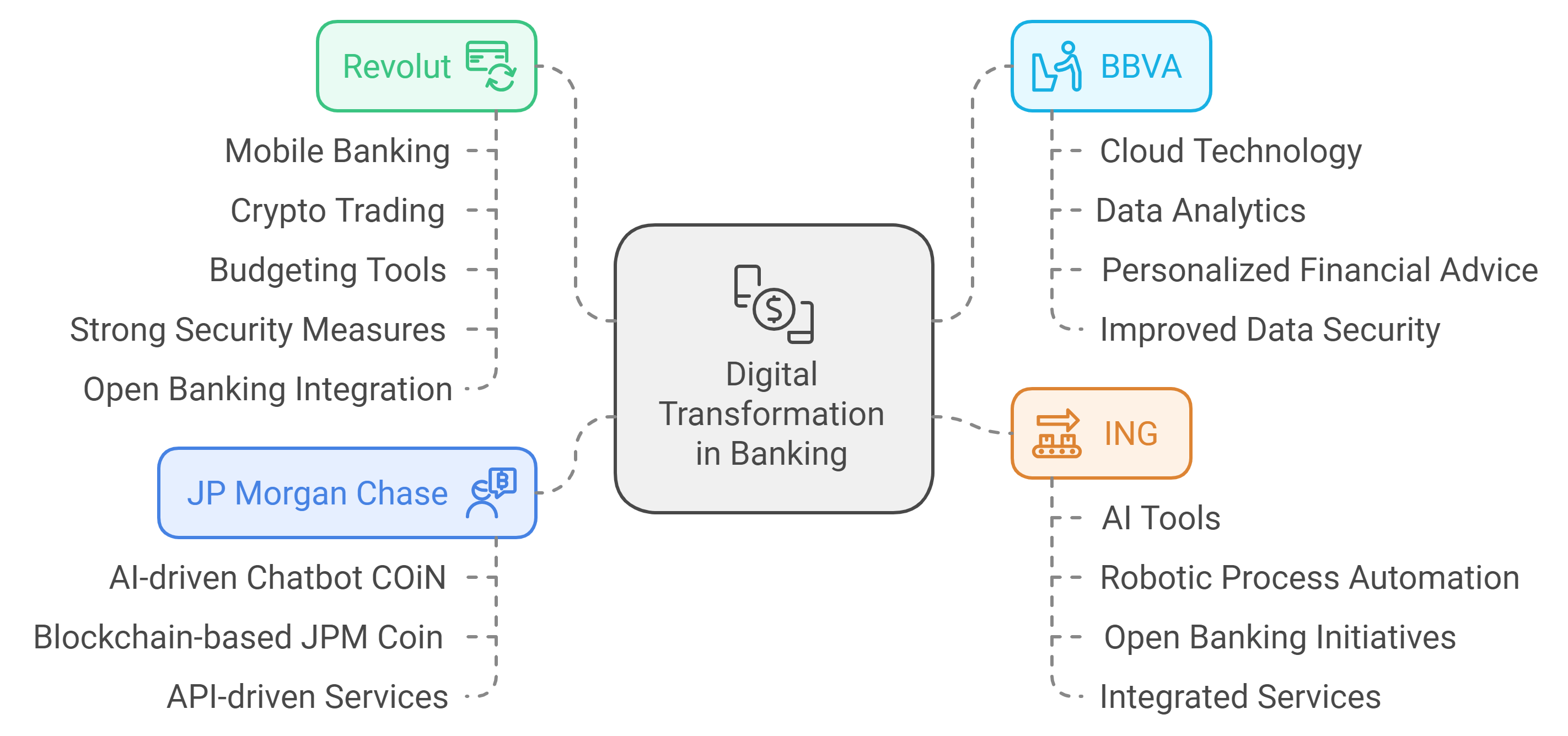
Education
Diplomas and certificates are now stored on the blockchain. This helps schools, employers, and students. No fake degrees. Quick checks. Universities like MIT already use it. It brings trust into digital learning.
Key Data on Blockchain Adoption
| Industry | Key Adoption Metric | Source |
| Finance/Banking | 37% of global blockchain revenue in 2022 | IdeaUsher |
| Supply Chain Management | 29.8% CAGR (2024-2030) | IndustryARC |
| Healthcare | High CAGR due to data security needs | IdeaUsher |
| Retail/Consumer Goods | Highest CAGR projected through 2032 | Fortune Business Insights |
| Government | Growing use in voting and digital IDs | Simplilearn |
Other Industries to Watch
Beyond these leaders, other sectors are adopting blockchain too. Insurance uses smart contracts to automate claims (Nasscom). Cloud storage, like Storj, offers decentralized data solutions (Simplilearn). Even the metaverse and gaming use blockchain for virtual economies (Nasscom). These industries are growing, but their adoption speed trails the top five.
Why the Rush to Blockchain?
Why are these industries moving so fast? Blockchain offers unique benefits. It’s secure, so data stays safe. It’s transparent, so everyone can trust the process. It cuts costs by removing middlemen. Plus, it’s flexible, fitting many needs from banking to voting. The global blockchain market is expected to hit $44.29 billion in 2025, growing to $746.41 billion by 2032 (Fortune Business Insights). This growth fuels adoption across sectors.
Challenges and Considerations
Adoption isn’t without hurdles. Some reports note slower growth in regions like India (LNCT Group). Regulatory challenges can slow progress. For example, governments need clear rules for blockchain use. Scalability is another issue—blockchain systems must handle large volumes. Despite these, the benefits outweigh the challenges for most industries.
The Future of Blockchain Adoption
Looking ahead, blockchain will likely spread further. Finance will stay a leader, but retail and supply chain may overtake it in growth. Healthcare’s focus on data security will keep it strong. Governments will expand blockchain use as trust grows. By 2030, the market could reach $1,235.71 billion (IndustryARC). Which industries will lead next? It depends on innovation and need.
Frequently Asked Questions
Which Blockchain Is Currently The Fastest?
Solana is currently the fastest blockchain. It processes up to 65,000 transactions per second, ensuring high-speed performance.
What Are The Most Adopted Blockchains?
The most adopted blockchains are Bitcoin, Ethereum, Binance Smart Chain, Cardano, and Solana. These blockchains offer robust security and decentralization.
Who Are The Big 4 Of The Blockchain Technology?
The big four of blockchain technology are Bitcoin, Ethereum, Ripple (XRP), and Litecoin. These platforms lead in innovation and market adoption.
What Is The Most Successful Blockchain Company?
The most successful blockchain company is Binance. It is the largest cryptocurrency exchange by trading volume, offering various blockchain and crypto services.
Conclusion
Blockchain technology is reshaping various industries rapidly. Finance leads the adoption race. Healthcare benefits from secure data handling. Supply chain management gains transparency. Real estate sees improved transaction processes. Energy sector enhances grid efficiency. Each industry finds unique advantages. Blockchain’s growth shows no signs of slowing.
Stay updated to see more industries embracing this tech. Its impact will be widespread and transformative. Explore how your industry might benefit from blockchain. The future looks promising with these advancements.


